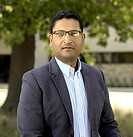
Food Systems Planning Undergraduate Certificate @ Rowan University
The Certificate of Undergraduate Study (CUGS) on Food Systems Planning is being offered by the Department of Geography, Planning, and Sustainability at Rowan University. The CUGS requires 12 credit hours. The CUGS is open to matriculated and non-matriculated students. Please reach out to Dr. Meenar (the coordinator of this new CUGS) with any questions.

What is Food Systems Planning CUGS?
The Food Systems Planning CUGS is a way to obtain certification and thorough knowledge in the field of food systems. How we eat determines a large part of how we use the world. With this CUGS you come to understand the social, economic, and environmental benefits of a strong local/regional food system. You will learn where food comes from, how it is cultivated, processed and shipped, and how it interferes with many of the global challenges we are facing on Earth today. While gaining this knowledge you’ll understand the dynamic relationship between food and how it affects ecosystems, health equity, power structure, and society as a whole in cities or rural areas. The American Planning Association is now incorporating food systems planning as an important dimension of its advocacy and professional training. This CUGS will provide students with a foundation in community and regional planning concepts along with a specific focus on how food can foster community and individual-level health, local and regional economic development, and food justice.

Why enroll?
Food systems planning has relevance in your daily life whether you know it or not. The steps of food production, aggregation, distribution, purchasing, marketing, consumption and the way food waste is covered are all a part of food systems. A strong regional food system promotes a plethora of economic, environmental, and social benefits which can pertain to many fields of studies. The food system has global challenges. The certificate could be attractive to those majoring in Community and Environmental Planning, Environmental and Sustainability Studies, Disaster and Emergency Preparedness, Marketing, Anthropology, Sociology, Public Health, or Law. Issues food systems pertain to can include but are not limited to sustainability, food insecurity, food justice, agricultural practices, farmers and workers rights, and food waste. The concept of food systems can truly be approached from many different perspectives and would be a resourceful addition to anyone's academic or professional accomplishments.
What are the benefits?
The benefit of obtaining this CUGS is that it can be linked to many career opportunities at the local, state, or federal level. With a certification in Food Systems Planning you can be found as a desirable candidate in the field of agriculture, public health, nutrition, planning, education, sustainability, public policy, ecology, marketing or any other field that is inclined to improve or change the food systems. In addition, you will have the capability to make sustainable and rewarding choices with your food consumption, as you will be able to apply what you have learned in your everyday life.
Curriculum: 12 credit hours needed
3 required courses:
-
PLAN 31280: Foundation of Planning and Environmental Design
-
PLAN 31387: Food Systems Planning
-
PLAN 31386: Land Use and Conservation
1 elective course from the following:
-
PLAN 31389: Environmental/Sustainability Planning
-
PLAN 31495: Planning Studio (If the studio is focusing on a food systems topic)
-
ANTH 02240: Food and Culture
-
NUT 00410: Nutrition and Public health
-
GEOG 16307: Geography of Transportation

Nathan Kapus and Emma Callan
Photo: Gabby Davis


Gabrielle Davis
"Food insecurity is faceted in more communities than you would ever realize. I want to become a part of the solution and ensure that how and why people get their food is as sustainable and just as possible. Witnessing the system of industrial agriculture collapse before my eyes due to the effects of COVID19 reinforced the idea that alternative ways of acquiring food needs to be improved upon and given adequate recognition."
- Gabby Davis
"A sustainable food system is a crucial feature of any community, whether it be a local or regional. Unfortunately, many communities face food insecurity and these issues multiply during times of crisis as we’ve seen this year. As planners, we should consider this unacceptable as every person in a community deserves access to healthy food options. I’m hoping to prevent these insecurities by educating communities on sustainable food supply and alternative methods of food production." - Hunter Swanson

Hunter Swanson


Kymonie Thomas-Nagil
"Interning for a nonprofit that specializes in food systems planning shows the significance of the need for planners. The resources are there to help lead to a country free of food insecurity. Delving into this sector of planning has grown into a part of my life. There is plenty of work to do and being a part of the solution is a great way to give back."
- Elli Moorer
"I feel as though food systems planning is important to create healthy communities so that people can have access to affordable, healthy food because hunger and obesity are nationwide public health concerns.”
- Kymonie Thomas-Nagil
S T U D E N T S' P E R S P E C T I V E S
Eliana Moorer

"Food Systems planning is an up and coming field with heavy implications. An ever growing population means that food security is one of the biggest issues of our time, and planning for it is something that I want to be a part of. Synthesis of the built environment and agriculture for sustainable food security is how I would like to leave my mark on the world."
- Jay Cummins
James Cummins

M E E T T H E F A C U L T Y
Mahbubur Meenar, PhD
Dr. Meenar teaches Planning Studio and Environmental/Sustainability Planning. His PhD dissertation was focused on community food insecurity and food justice topics in Philadelphia. Dr. Meenar has conducted several funded research projects on food systems and has published journal articles, book chapters, and reports. His food-related articles have been published in the Journal of American Planning Association, Environment and Planning A, Built Environment, and the Journal of Agriculture, Food Systems, and Community Development. His research projects were based in Philadelphia and Southern New Jersey. He is currently serving as the director of Glassboro Food & Health Equity Project---funded by Robert Wood Johnson Foundation and New Jersey Health Initiatives---leading a community-based project on healthy and affordable food access. Contact Dr. Meenar.


Megan Bucknum
Megan Bucknum teaches Food Systems Planning and Foundation of Planning and Environmental Design. Besides, she has worked as a consultant on food projects throughout the country and has held staff positions at New Venture Advisors LLC, Philly CowShare, The Food Trust, Fair Food Philadelphia, and the Wallace Center at Winrock International, as well as assisting with the University of Vermont’s inaugural Food Hub Management Certificate course. She has been a contributing author to a the planning guide Building Successful Food Hubs, the Healthy Food in Small Stores report, and the books “Reclaiming Our Food: How the Grassroots Food Movement is Changing the Way We Eat” and “Institutions as Conscious Food Consumers.” She serves on the leadership team of the American Planning Association’s Food Systems Division.
Faculty publications relevant to Food Systems Planning CUGS
A R T I C L E S + B O O K C H A P T E R S
-
Bucknum, M., & Bentzel, D. (2019). Food banks as local food champions: How hunger relief agencies invest in local and regional food systems. In S. Thottathil & A. Goger (Eds.) Institutions as Conscious Food Consumers: Leveraging Purchasing Power to Drive Systems Change (pp. 286-305). San Diego, CA, USA: Academic Press.
-
Meenar, M., Morales, A., & Bonarek, L. (2017). Regulatory practices of organized urban agriculture: connection to planning and policy. Journal of American Planning Association, 83(4), 389-403
-
Meenar, M. (2017). Using participatory and mixed-methods approaches in GIS to develop a Place-Based Food Insecurity and Vulnerability Index. Environment & Planning A, 49(5), 1181–1205.
-
Meenar, M. (2017). Assessing the spatial connection between urban agriculture and equity. Built Environment (special issue on Planning for Equitable Urban and Regional Food Systems), 43(3), 364-375.
-
Meenar, M. (2015). Nonprofit-driven community capacity building efforts in community food systems. Journal of Agriculture, Food Systems, and Community Development, 6(1), 77-94.
-
Meenar, M. & Hoover, B. (2012). Community food security via urban agriculture: Understanding people, place, economy, and accessibility from a food justice perspective. Journal of Agriculture, Food Systems, and Community Development, 3(1), 143-160.
-
Meenar, M. (2014). Gardening and quality of life. In A. C. Michalos (Ed.), Encyclopedia of Quality of Life and Well-Being Research (pp. 2396–2399). Dordrecht, Netherlands: Springer.
-
Meenar, M. (2012). Feeding the hungry: Food insecurity in lower income communities. In N. Reid, J. Gatrell, & P. Ross (Eds.), Local Food Systems in Old Industrial Regions (pp. 71-91). Surrey, England: Ashgate.
-
Meenar, M., Featherstone, J., Cahn, A. L., & McCabe, J. (2012). Urban agriculture in post-industrial landscape: a case for community generated urban design. 48th International Society of City and Regional Planners (ISOCARP) Congress, Perm, Russia.
-
Bucknum, M. (2011). Fostering food entrepreneurship: Appalachian Center for Economic Networks. In T. Denckla Cobb (Ed.), Reclaiming Our Food: How the Grassroots Food Movement is Changing the Way We Eat (pp. 256-257). North Adams, MA, USA: Storey Publishing.
-
Bucknum, M. (2011). Transforming abandoned city land into a community farm: Beardsley community farm. In T. Denckla Cobb (Ed.), Reclaiming Our Food: How the Grassroots Food Movement is Changing the Way We Eat (pp. 84-86). North Adams, MA, USA: Storey Publishing.
-
Sorrentino, J., & Meenar, M. (2006). Poverty in the United States. In M. Odekon (Ed.), The Encyclopedia of World Poverty (pp. 1106–1116). California: Sage Publications.







P R A C T I T I O N E R R E P O R T S
-
Bentzel D., Weiss S., Bucknum M., & Shore K. (2015). Healthy food and small stores: Strategies to close the distribution gap. Philadelphia, PA: The Food Trust.
-
Slama, J., Nyquist, K., Bucknum, M., Doshi, S., & Haddad, H. (2012). Building successful food hubs: A business planning guide for aggregating and processing local food in Illinois. Oak Park, IL: FamilyFarmed.org.
-
Slama, J., Nyquist, K., & Bucknum, M. (2010). Northern Virginia local food assessment. Oak Park, IL: FamilyFarmed.org and Wallace Center, 2010.
R E S E A R C H R E P O R T S
-
Meenar, M. (2014). Addressing hunger and food insecurity: Community capacity building of Philadelphia’s nonprofit organizations.
-
Meenar, M. (2012). A survey of Philadelphia farmers' market customers.
-
Meenar, M. & Hoover, B. (2012). Food insecurity and spatial inequality in Philadelphia's lower-income neighborhoods: Analyzing the role of community gardens.


